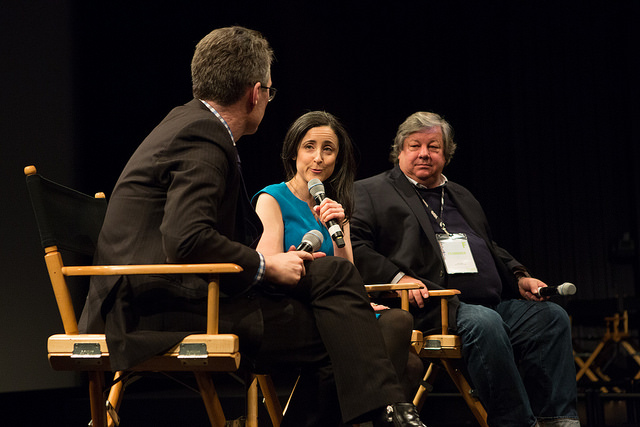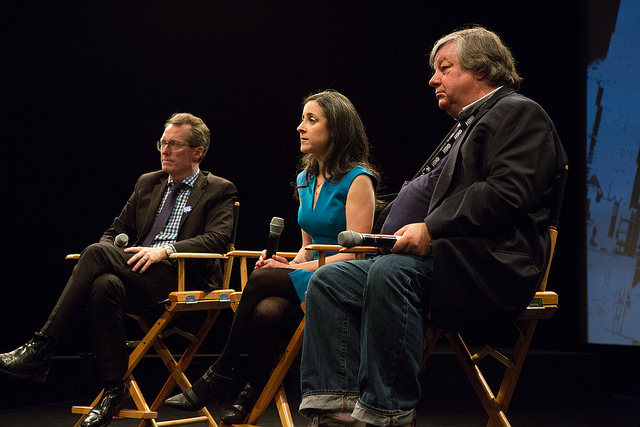Pultizer Power! An inquiry into the revered award and its dedication to identifying excellence


Written by Megan Scanlon
Power. What is it? What does it look like, how does it move, and how do we know it when we see it? Is power a container that is filled and emptied, shaped and reshaped? What gives power to writing, to music, to art? The NYC premiere of The Pulitzer at 100 masterfully brings these questions to the surface. The film is a steady and irrepressible eruption of truths confirmed and shattered through bearing witness, through the written word. The Pulitzer at 100 is both grounding and elevating, and the closing lines of the film suggest that we listen to what is not being said, as the “force of the artist’s voice is something you hear below the words.”
Directed by Kirk Simon, The Pulitzer at 100 travels through the origins of the Pulitzer Prize. Recognizing excellence in American arts and journalism, the award thread itself through the American fabric in 1917. The film is an inquiry into excellence in writing and the American voice, exploring themes of accountability, injustice, power, and expression. The words on screen from game changers like Maureen Corrigan, Michael Cunningham, Paula Vogel, Wynton Marsalis, and Junot Diaz emerge powered with stories of the American experience. What does it mean to be American? Jeffrey Eugenides, author of the novel Middlesex said in the film, “Everyone was an immigrant except Native Americans–there’s no American identity that is pure.”
Excerpts from Pulitzer Prize winners such as Toni Morrison, Robert Frost, and Eugene O’Neill are weaved throughout the film. They are moving renditions delivered by performers including John Lithgow, Helen Mirren, and Martin Scorsese. Their readings are exhales, releases from the sharp intakes of breath as the film revisits injustice and sorrow. From the Kent State shootings photographed by John Filo, to The Transmigration of Souls, the classical music expression of grief that permeates the nation after 9/11 composed by John Adams. The film’s subjects make clear that the process of awarding the Pulitzer Prize is arbitrary; each year new jurors come to a consensus. It is not objective, and reflects the prism of emotions, blind spots, brilliance, and interests that are an innate part of being human. However it underscores the crucial importance of authentic expression. As Thomas Friedman said, “The reader can always tell who is working and who is mailing it in.”
Present for a post-screening Q&A was Simon and journalist and subject Sheri Fink. In conversation with DOC NYC artistic director Thom Powers, they, along with the audience, in a demonstration of true inquiry and engagement, explored the making of the film, and extended the conversation around power, so starkly put by Robert Caro, “The better we know it the better our voting will be, the better our democracy. The only remedy for injustice is to expose it.” This film is a must see, and in true DOC NYC fashion, the evening was an event that left an indelible impression. When seen all at once, as Pulitzer Prize winner Kurt Vonnegut said, it produces “an image of life that is beautiful and surprising and deep.”
Megan Scanlon works at the American University of Beirut. She has written for the DOC NYC blog, the Stranger Than Fiction documentary series, and the Journal of Community Engagement and Scholarship. Megan was a prescreener for the Margaret Mead Film Festival, and is a volunteer at the Bronx Documentary Center and DOC NYC. Follow her on instagram and twitter @


